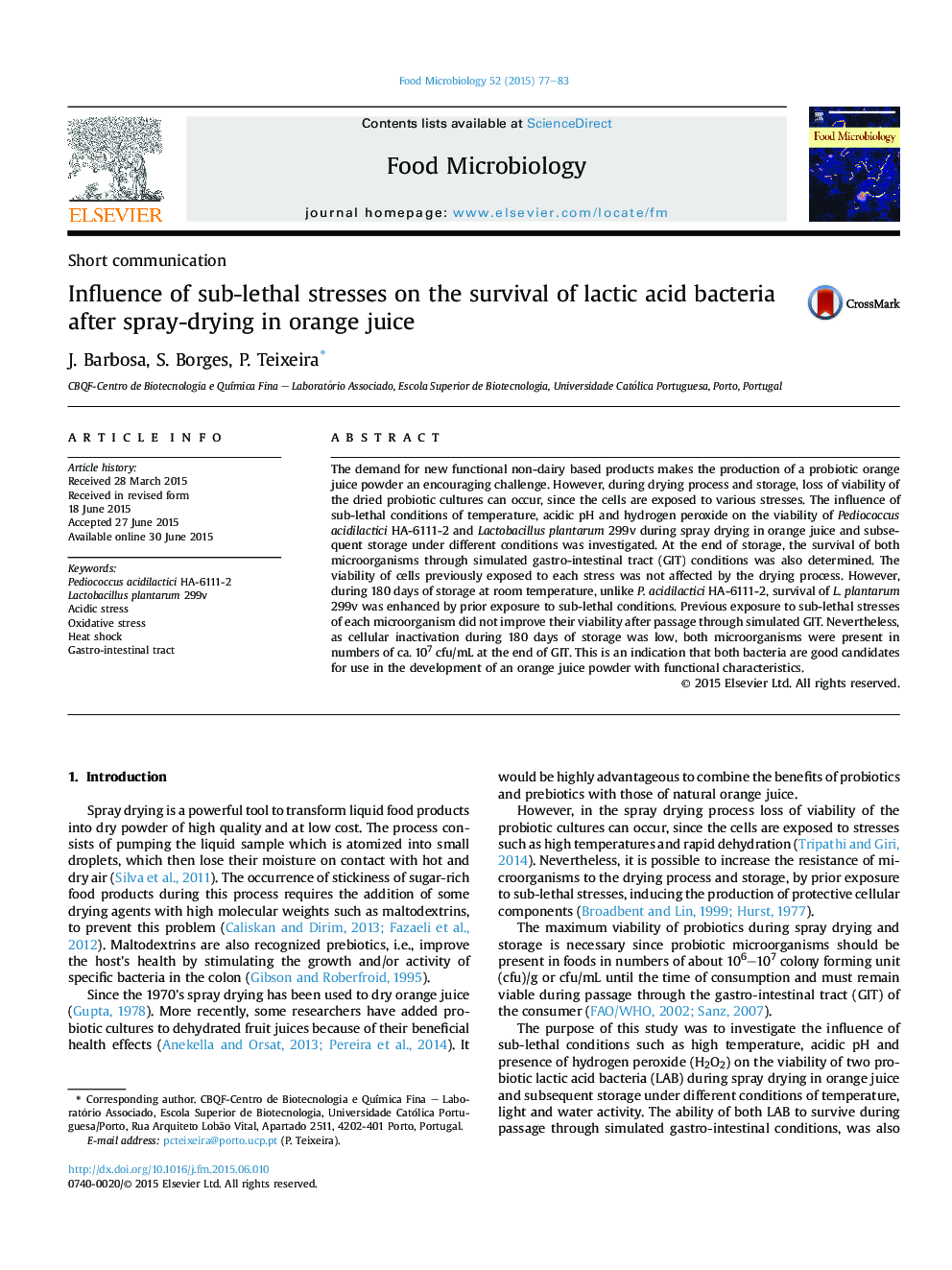| Article ID | Journal | Published Year | Pages | File Type |
|---|---|---|---|---|
| 6288441 | Food Microbiology | 2015 | 7 Pages |
Abstract
The demand for new functional non-dairy based products makes the production of a probiotic orange juice powder an encouraging challenge. However, during drying process and storage, loss of viability of the dried probiotic cultures can occur, since the cells are exposed to various stresses. The influence of sub-lethal conditions of temperature, acidic pH and hydrogen peroxide on the viability of Pediococcus acidilactici HA-6111-2 and Lactobacillus plantarum 299v during spray drying in orange juice and subsequent storage under different conditions was investigated. At the end of storage, the survival of both microorganisms through simulated gastro-intestinal tract (GIT) conditions was also determined. The viability of cells previously exposed to each stress was not affected by the drying process. However, during 180 days of storage at room temperature, unlike P. acidilactici HA-6111-2, survival of L. plantarum 299v was enhanced by prior exposure to sub-lethal conditions. Previous exposure to sub-lethal stresses of each microorganism did not improve their viability after passage through simulated GIT. Nevertheless, as cellular inactivation during 180 days of storage was low, both microorganisms were present in numbers of ca. 107 cfu/mL at the end of GIT. This is an indication that both bacteria are good candidates for use in the development of an orange juice powder with functional characteristics.
Related Topics
Life Sciences
Agricultural and Biological Sciences
Food Science
Authors
J. Barbosa, S. Borges, P. Teixeira,
